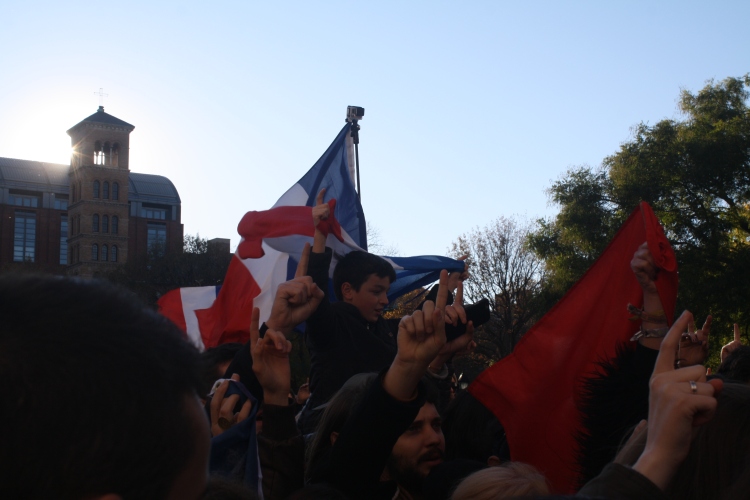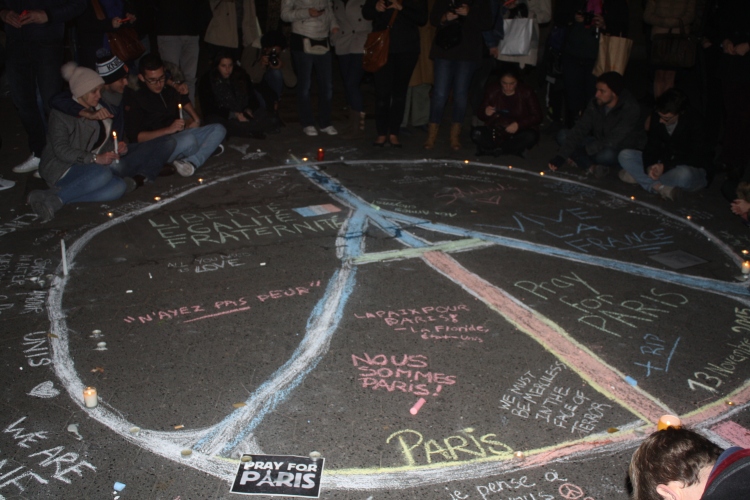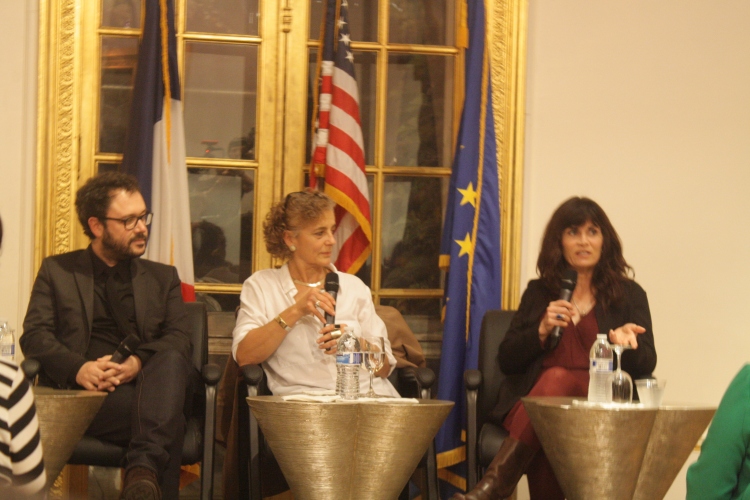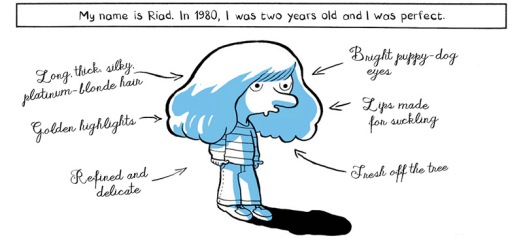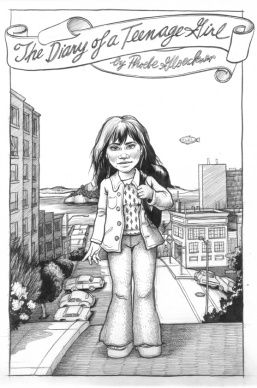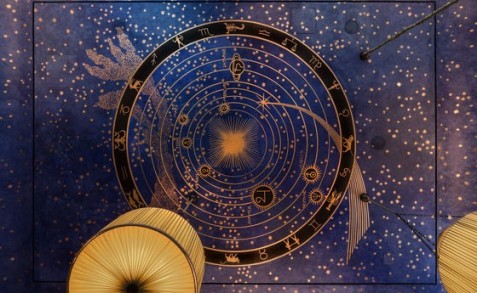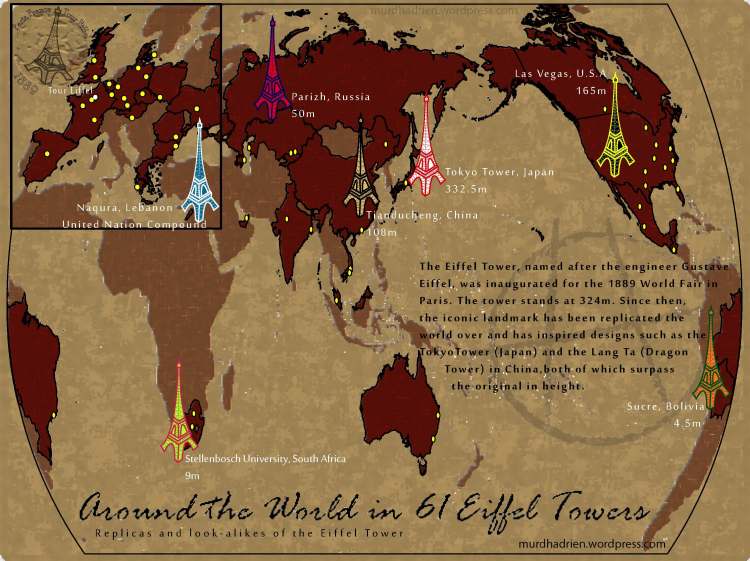If you are remotely familiar with the Alliance Française–also known as the French Institute–you know it is a reliable place to sign up for French classes of all levels, as well as the host of a library of French print and digital material. The AF:FI in Manhattan also organizes cultural events, including exhibitions and talks. One series of discussion you might be surprised to find is one entitled Sex and Seduction, which AF:FI has organized for the past three years. And as this year’s series is coming to an end, but I may well share what I have learned from attending last’s week event, La Jalousie (Jealousy): The Truth About Love, Mistrust & Suspicious Minds.
But before that, a question might be: why would a French cultural association hosts a series on sex and seduction (and many others might simply ask « why wouldn’t they? »). Sex and relationships are in the fabric of every cultures, although there are various taboos and degrees of reserve when those topics are brought up in discussion. As a French person living in the U.S., it was quite surprising to discover the prudishness of how sex was discussed in the media, in popular culture, and in sex ed. The American’s reputation of exacerbated sexuality as transmitted via films, music, and television did not match my expectations in everyday’s discourse (or censorship practices, for that matter), and surprisingly enough it rather seemed that it is we, the French, who are the erotically exhaled ones. And yet, amusingly enough, the French-dubbed Pepé Le Pew (an enamored cartoon skunk chasing a poor unwilling cat) speaks with an Italian accent, as opposed to a French-accent for American audience.

One’s Frenchman is someone’s Italian.
Although some of the talks in the Sex & Seduction series focus on France’s cultural relationship and taboo to sex, some others are more generalized. Last week’s talk was the latter, where an academician, a psychotherapist, and a best-selling author discussed the role of jealousy in shaping our relationships and sex lives. What I learned? Basically: jealousy is a good thing, albeit in moderation and self-awareness.
Peter Toohey, classics professor at the University of Calgary, mentioned the cultural manifestation of jealousy in tandem with the concept of romantic love in early European literature; and how the emotion has been framed in negative light from Christian traditions and norms (i.e. as a conductor to sinful behavior). Interesting enough, in the visual medium, jealousy is emphasized via the ears and eyes, those organs being the purveyors of infidelity. Although if there’s something that stuck out from Toohey, it is that jealousy is difficult to define since it is the gateway to a variety of hard-hitting and exuberant emotions (shame, anger, fear).
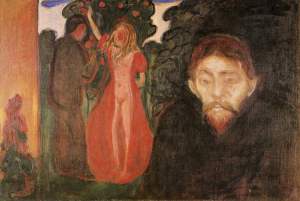
Edvard Munch’s (The Scream) portrayal of jealousy, as a man looks away from an Eve’s like figure. The use of yellow is apparently widespread in the visual representation of jealousy.
Dr. Gail Saltz brought the discussion aligned with evolutionary biology: biological imperatives stemmed from adapting survival behaviors along gender roles (the male provider and the female caretaker). She further mentioned differences in cerebral mapping between males and females, although those are not predeterministic to choices but rather instinctive, gut-feelings in our decision making. When it came to jealousy, sexual infidelity was more often a red line for men in contract to emotional infidelity for women. Again, those are generalizations, and we’re perhaps more culturally inducted our whole lives when conditioned into gender roles, but the argument was not to say that nature predefined nurture. We feel jealousy as a result of our nature, the nurture shapes our response and rationalization to the feeling of jealousy, something that extends beyond cultural assimilation as it also includes childhood experiences.
Neil Strauss, a journalist for the New York’s Times and best-selling authors of self-help books such as The Game: Penetrating the Secret Society of Pickup Artists was an entertaining speaker, talking about the functional and dysfunctional utility of jealousy. Jealousy, after all, is an alarm response that the object of one’s desires is « threatened » by a competitor, or should we say, that the subject of jealousy feels threatened. Because one’s cannot control the surge of emotions, especially those of another person, jealousy is a gateway feeling of powerlessness, vulnerability, and worse, fear of abandon. But functionally speaking it’s a trigger to protect of something which may have been taken for granted, and best perhaps, the needed spark to rekindle waning desires (be it sexual, emotional, or both). The darker side, of course, can be one of possessiveness, rage, and destructive behavior. An interesting word Strauss brought up was compersion, and as he defined it: the ability to feel joy for your loved one’s happiness, even if you have no part in it. Although Strauss found out that he couldn’t help but feel jealousy in practice, he had to come to term with it instead of repressing something that may have grown into accumulated grief, frustration, and confused anger.
So, what about jealousy? Maybe it does have a bad rep, one which it doesn’t deserve, since it’s only one of many biochemical responses cooked up by our complicated brains to enable us, vulnerable meatbags, to adapt and survive. Maybe the same could be said about a relationship turned soured by jealousy: because isn’t your brain then telling you that you have something at least worth fighting for?
Cool event, although a bit pricey ($20 for AF:FI members, $25 for non-members).
